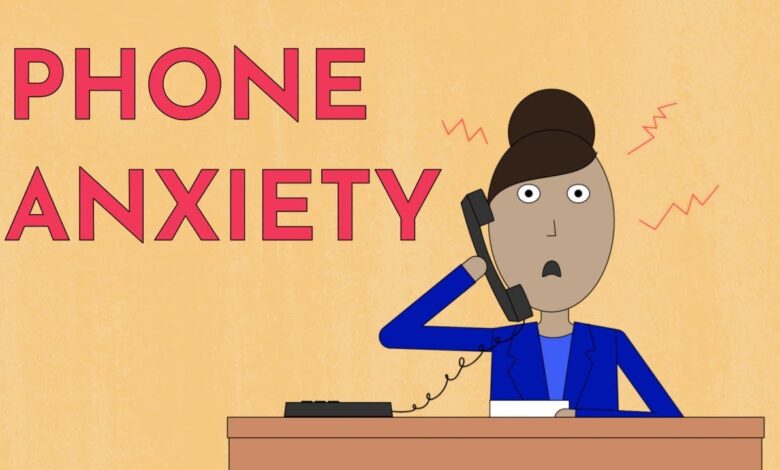Overcoming Phone Anxiety – Strategies To Thrive In A Work Environment

Phone anxiety can cause individuals to miss opportunities and relationships in the workplace and their personal lives. It may also be the result of a traumatic experience or a type of performance anxiety.
Phone calls can feel more intimidating than face-to-face conversations because there are no visual cues. Fortunately, there are some helpful strategies for overcoming phone anxiety.
Take a Deep Breath
Phone anxiety can impact your work productivity and lead to missed opportunities. It can even lead to burnout in some cases. Fortunately, overcoming the fear and getting on with your day-to-day tasks is possible.
One of the tips to fight phone anxiety at work is to take a deep breath to calm your body and mind before calling. You may feel nervous about what to say or worry you’ll stumble over your words, but taking a deep breath will lower your heart rate and calm your nerves.
You can also try a few strategies to help you over the phone, such as writing a script before the call and practicing with family or friends. In addition, cognitive-behavioral therapy (CBT), which focuses on identifying and challenging negative beliefs, or exposure therapy, which involves gradual exposure to feared situations leading to desensitization, can be effective for overcoming phone anxiety. You can find a therapist specializing in these issues online or in person. Alternatively, you can try mindfulness and diaphragm breathing exercises to reduce your anxiety.
Don’t Avoid It
Phone anxiety is a real and valid condition that can have a profound impact on one’s life. It can prevent people from getting jobs, landing business deals, and developing lifelong relationships. Avoiding calls only exacerbates the anxiety and can lead to missing out on important opportunities.
If you suffer from phone anxiety, try recording your thoughts and feelings in a diary to identify the triggers. This will help you to understand the root cause of your anxiety and determine what steps are needed to address it.
Anxiety often arises from uncertainty, so it’s best to prepare for a call in advance by creating and rehearsing scripts. This will help reduce your anxiety by allowing you to focus on the task and reassure you that you can do it. It’s also helpful to think of a phone call as an opportunity instead of a fearful situation. This will change how you view your phone and may make it more enjoyable.
Practice Makes Perfect
For many people, phone conversations feel much more intimidating than text messages because there’s no option to back out of the conversation if you’re lost. Moreover, brief silences can be very uncomfortable over the phone because we can’t see the other person’s reaction to them.
The best way to overcome phone anxiety is to practice talking on the phone. This is known as exposure therapy. Start by making short calls and gradually increase the length of your conversations. Try using relaxation techniques like deep breathing and meditation.
You can also try rehearsing your opening line or practicing with a friend before the call. Lastly, remember to smile before you pick up the phone. Research has found that smiling on the phone can help you relax and convey a sense of pleasantness to the other person. Plus, it’s a great way to boost your confidence! It will even trick your brain into thinking you’re excited about the conversation.
Don’t Overestimate Your Fear
A fear of phone calls can hold you back and prevent you from opening doors that can open up career opportunities or lifelong friendships and relationships. It is important to know that phone anxiety can be overcome with the right tools and strategies.
One way to get over this fear is to reframe it. A study found that when individuals reframed their anxious feelings as excitement, they became less nervous and performed better on the call.
Another strategy is to practice before your call by writing down your script and outlining how the conversation will go. Lastly, it can be helpful to think of a phone call as more like a fishing expedition than an interview and ask questions designed to get to know the person you’re talking to. This can put them at ease and help you build rapport with them. Ultimately, the more you practice, the better you’ll become.





